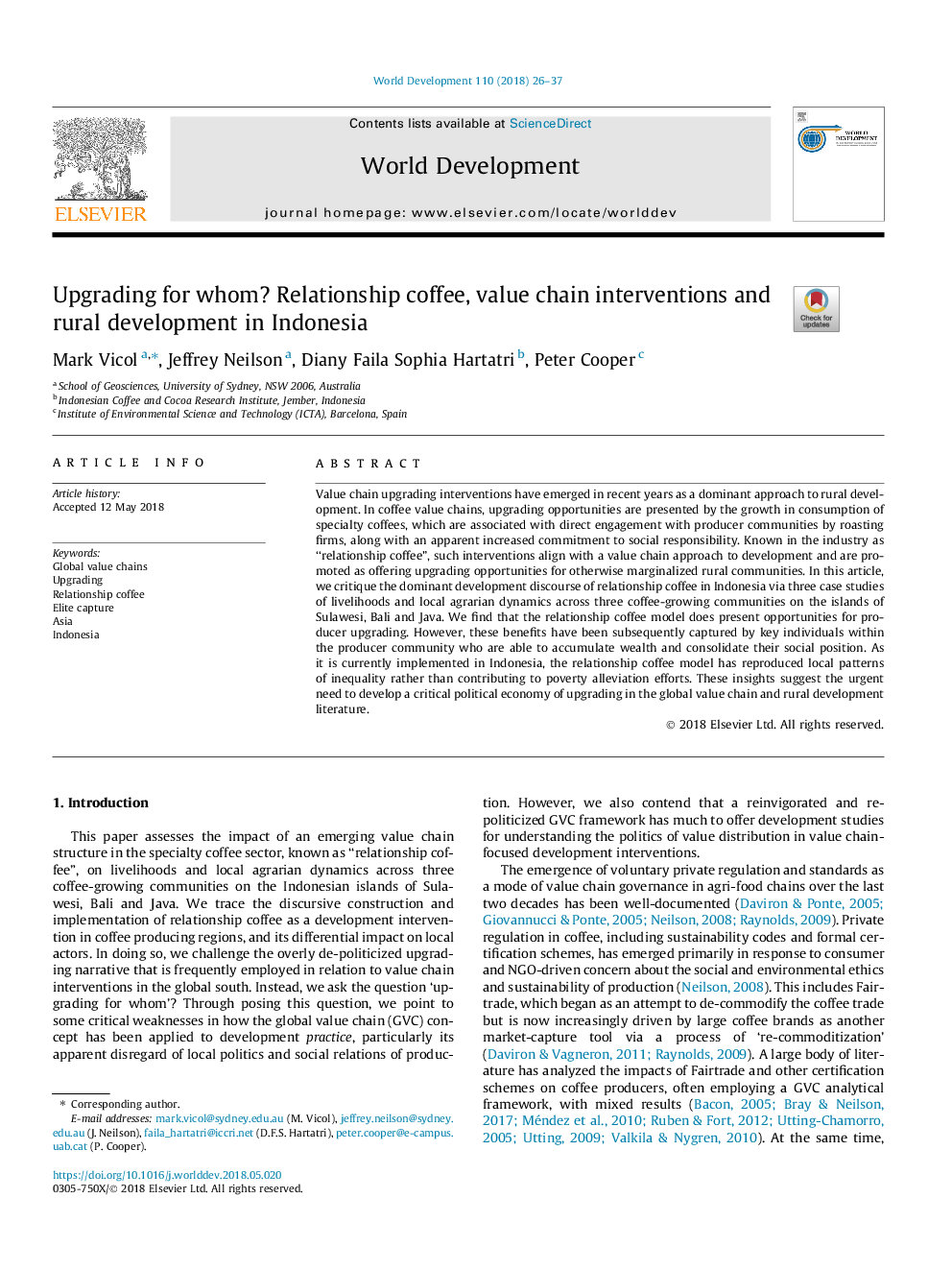| Article ID | Journal | Published Year | Pages | File Type |
|---|---|---|---|---|
| 7391221 | World Development | 2018 | 12 Pages |
Abstract
Value chain upgrading interventions have emerged in recent years as a dominant approach to rural development. In coffee value chains, upgrading opportunities are presented by the growth in consumption of specialty coffees, which are associated with direct engagement with producer communities by roasting firms, along with an apparent increased commitment to social responsibility. Known in the industry as “relationship coffee”, such interventions align with a value chain approach to development and are promoted as offering upgrading opportunities for otherwise marginalized rural communities. In this article, we critique the dominant development discourse of relationship coffee in Indonesia via three case studies of livelihoods and local agrarian dynamics across three coffee-growing communities on the islands of Sulawesi, Bali and Java. We find that the relationship coffee model does present opportunities for producer upgrading. However, these benefits have been subsequently captured by key individuals within the producer community who are able to accumulate wealth and consolidate their social position. As it is currently implemented in Indonesia, the relationship coffee model has reproduced local patterns of inequality rather than contributing to poverty alleviation efforts. These insights suggest the urgent need to develop a critical political economy of upgrading in the global value chain and rural development literature.
Related Topics
Social Sciences and Humanities
Economics, Econometrics and Finance
Economics and Econometrics
Authors
Mark Vicol, Jeffrey Neilson, Diany Faila Sophia Hartatri, Peter Cooper,
